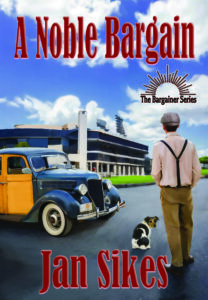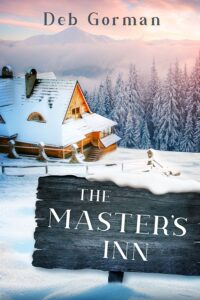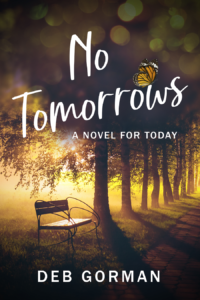My guest today is a dear friend and a fantastic writer. I’ve been glued to the pages of more than one of her novels. Jan Sikes is a multi-award-winning author, who writes compelling and creative stories from the heart. Please help me welcome her to the Kill Zone.
Welcome, Jan!

Greetings, everyone. I am thrilled to be a guest in the Kill Zone today! Thank you, Sue, for inviting me.
My subject today serves as a reminder to feed the reader within each of us. We spend hours upon hours doing research, plotting, developing characters, and writing our stories. We write, rewrite, proofread, and edit day in and day out, sometimes around the clock and into the next day without a break. But are we remembering to feed ourselves, to give ourselves the nourishment we need to stay strong and alert at those tasks? And I’m not talking about food.
If you’ve gone more than a couple of weeks without reading for pleasure, pick up a book. Find a recent novel from a favorite author or try an unfamiliar author. Whichever you choose, allow yourself to get lost in the story, in the rhythms of good fiction.
Read a couple of mysteries without trying to figure out whodunit or how the author wove the plot threads together. Get lost in a love story and allow yourself to cry. Read a horror or suspense novel and give in to the goose bumps.
Writers and editors who only work at the craft but don’t enjoy reading, do not bring their best efforts to their work. When you’re not being fed a steady diet, you’re eventually not going to produce your best work.
Readers need to read.
That’s also true for writers and editors. It’s a fabulous way to slip into a fictional world for relief from stress and pressure and even from the monotony of repetition and habits in daily life. Life can be great with no need to escape. That doesn’t mean relaxing with a book, diving into the worlds of fascinating characters, can’t make it even better.
I’ve always been an avid reader and most always have a book open on my Kindle. But when I go too long without getting lost in someone else’s story, I get antsy and even a little grouchy. I need my story fix.
I require a steady diet of fiction. I need to imagine, to explore, pretend and fantasize. It is essential to feed myself everything that good stories dish up—emotional upheaval and uncertainty, conflict, danger, adventure, and definitely the satisfaction of a solid resolution that neatly ties up dozens of the story elements that have entertained me and held my attention for however many pages the book has.
If you’ve been working hard on a project—maybe even promising yourself that you’ll read something as soon as you get through with this next section or problem—allow yourself the time to read and immerse yourself in someone else’s imagination.
Don’t keep putting it off.
Feed yourself well-written books that prove nutritious, that give you the stamina to keep working. Feed yourself something sweet, or something evil—something that gets you excited about stories and what-ifs.
Ingest and digest food for the soul and mind and spirit. Reading equates to food for dreaming. Food that will give you strength for the long haul.
Reading gives your mind a break. It can revitalize your writing and allow you to smash through blocks and problem areas. Read to remind yourself of the joy in fiction. Read because it gives you pleasure. Let reading both relax and energize you.
Take a new book—tonight or tomorrow or this weekend—and jump into its world, stretching your imagination as you become the hero, sidekick or even the villain. Use the mental stimulation and otherworldliness of unfamiliar places to draw you deep. Let a story you didn’t have to create take over your thoughts so you can experience characters, their adventures, and their world from the inside, using your senses and emotions. Project yourself into an imaginative scenario that has zero connections to your writing process.
Fill yourself up with the good stuff so you can write and edit some good stuff of your own.
 Jan Sikes is a multi-award-winning author, who writes compelling and creative stories from the heart.
Jan Sikes is a multi-award-winning author, who writes compelling and creative stories from the heart.
She openly admits that she never set out in life to be an author, although she’s been an avid reader all her life. But she had a story to tell—Not just any story, but a true story to rival any fiction creation. She brought the entertaining true story to life through fictitious characters in an intricately woven tale that encompasses four books, accompanying music CDs, and a book of poetry and art.
And now, this author can’t put down the pen. She continues to write fiction in a variety of genres, and has published many award-winning short stories and novels. Learn more about Jan at: www.jansikes.com

A true testament of character, resilience, and the magic of never giving up.
“This is a hope-filled story that lifts spirits and elicits smiles. Though it is the second book of the series, it can be read as a standalone. I highly recommend it.” ~ Gwen Plano
Universal Link: https://books2read.com/u/booMQR










 In 19th century Spain, a Seville butcher named Juan went on hunting trips with his godfather, Marquez, every Saturday. The two normally returned on Monday.
In 19th century Spain, a Seville butcher named Juan went on hunting trips with his godfather, Marquez, every Saturday. The two normally returned on Monday.


 It’s incredible how a designated workspace triggers the mind. For years, I had an office. As soon as I sat at my desk — headphones on, music cranked — my mind knew to write.
It’s incredible how a designated workspace triggers the mind. For years, I had an office. As soon as I sat at my desk — headphones on, music cranked — my mind knew to write.
